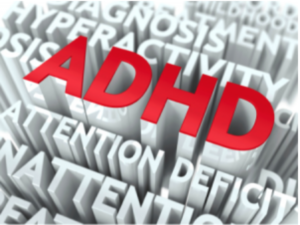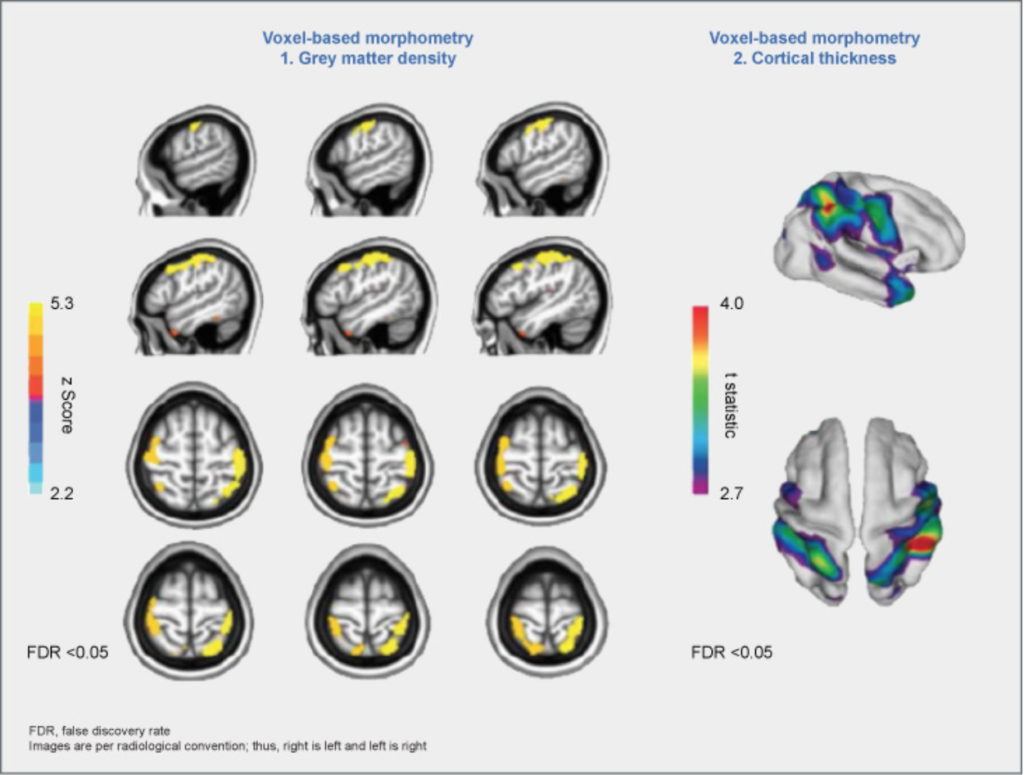Suggested video titled Adult ADHD and the brain

Attention-Deficit Hyperactivity Disorder (ADHD) is a neurobiological condition or mental disorder, that is more commonly found in children but increasingly being recognized in adults. In most cases, ADHD starts in childhood and continues into adulthood. Scientists have not designated a specific cause for ADHD but many conclude that genetics and/or environmental factors play a part in the development of the condition.
What is responsible for the way your body processes or behaves? YOUR BRAIN!!! An adult individual with ADHD has a hard time with the executive functions (like working memory, inhibition, and planning) causing difficulties in both attaining and maintaining a job, social situations and relationships. This due to structural, functional and neurotransmitter alterations in brains of people with ADHD.

Alterations in the brain’s structure are found in a person’s brain with ADHD. Regions within the brain involved in emotions, memory, and self-control are called grey matter. A person with ADHD will have lower grey matter density than a neurotypical person, causing cognitive dysfunction such as memory loss or the inability to plan complex activities. Cortical thickness is also reduced in adults with ADHD, affecting the neural network associated with attention (involved the right frontal and parietal lobes).
The connections or networks of the brain dictate different abilities and functions, ADHD can be an effect of functional abnormalities in certain regions of an adult’s brain. By using neuroimages of adult ADHD brain’s, over-activation of the “default mode network” during task performance and an under-activation in systems of executive function and attention are found. Defects in the prefrontal-striatal networks may cause the ADHD symptom of inattention and defects in the frontal-limbic networks may cause hyperactivity symptoms.

The 3 Subregions of the Prefrontal Cortex Thought to be Related to the 3 Core Symptoms of ADHD.
Neurotransmitters are signaling systems of chemical messages being passed between different parts of the brain. These systems may be disrupted in ADHD brains because of an alteration in regulating neurotransmitters: dopamine and noradrenaline. A decrease in the quantity of these neurotransmitters can lead to a functional reduction. If the prefrontal cortex cannot function properly then there is a negative impact on attention, alertness, and working memory.
MIT conducted a study using brain scans of adults who continue to have ADHD from childhood and those who no longer have it, or “outgrew” the condition. In comparing the brain scans of both groups at “wakeful rest and not focused on a particular task,” they found differences between the brain’s communication network. A neurotypical brain has a “default mode network” where the brain has synchronous activity when the mind is at rest. However, in those who have ADHD, major regions of the brain’s network no longer synchronize when the mind is unfocused. Interestingly, MIT’s new study shows that the synchrony pattern is restored in those adults who had ADHD as a child and now no longer have the condition.
Although there is much more to learn about adults with ADHD, evidence of the brain’s structural, functional and neurotransmitter alterations indicate significant brain differences between adults with and without ADHD.
Do you know of any practical applications that these scientists are striving for in doing this research? For example, you said that there is an alteration in signaling transmitters that inhibit messages being sent throughout the brain, but in adult who “outgrew” their ADHD, there is no sign of function abnormality; do you think it may be possible to study those individuals and find out how to reverse the affects of ADHD earlier on in a person’s childhood permanently without the use of medication?
I think you did a very nice job taking a very complicated, broad topic like ADHD and simplifying the cognitive science that governs the disorder. I do feel like you could have included a little bit more about research since that would have helped elucidate what scientists are trying to uncover about ADHD today. The MIT study was interesting and another approach to understanding ADHD would have helped paint a more complete picture. That being said, you did a great job talking about ADHD and the post was very well-written and easy to read!